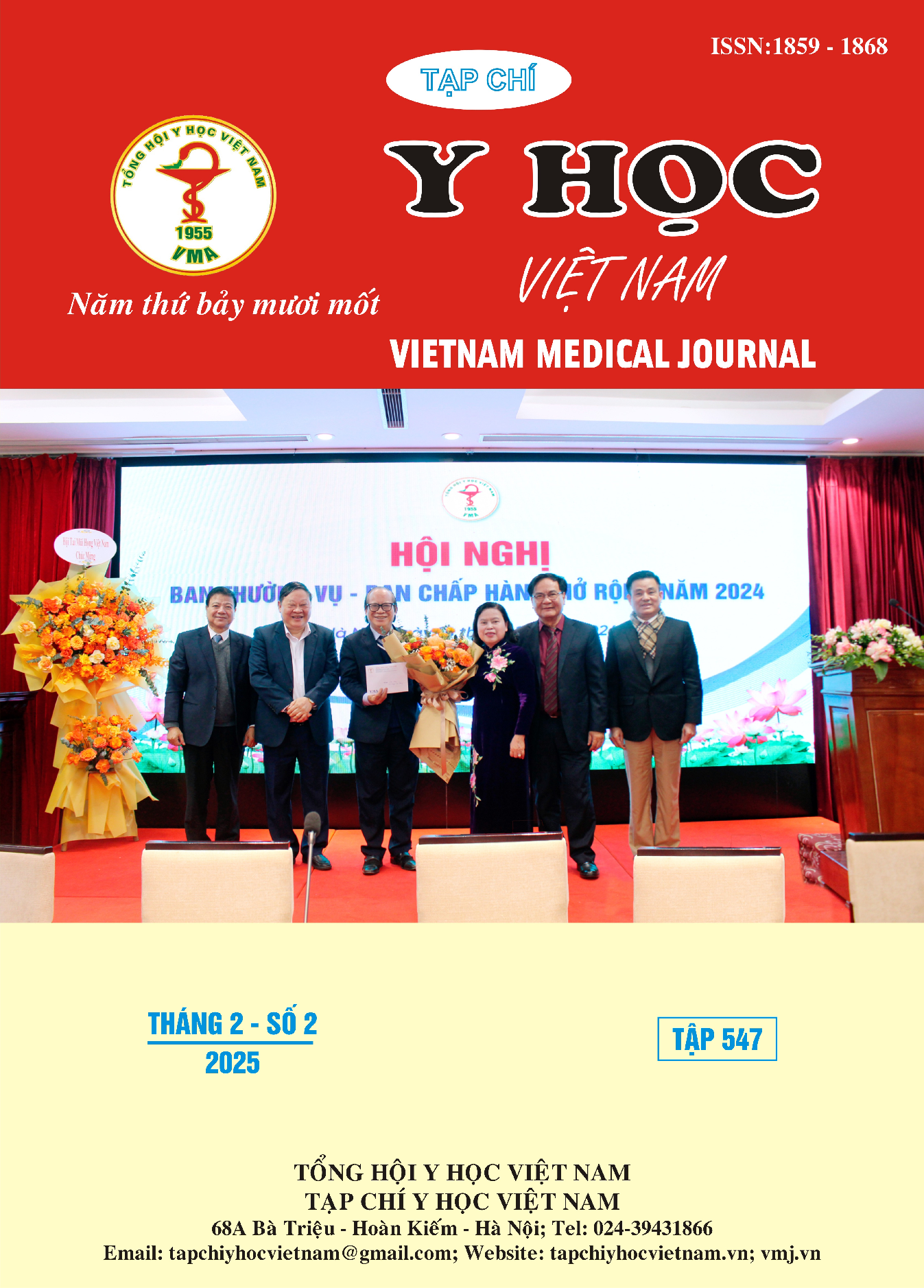ESTABLISHING ASO PCR POTOCOL FOR IDENTIFYING R1628P VARIANT IN LRRK2 GENE
Main Article Content
Abstract
Background: Parkinson's disease (PD) is among most common neurodegenerative disorders characterized by distinctive motor symptoms of tremor, rigidity, and reduced movement, caused by the progressive loss of dopaminergic neurons in the substantia nigra. The R1628P variant in the LRRK2 gene is a significant risk factor for PD in Asian populations, particularly among Chinese and Thai individuals. Research on R1628P provides further insights into the pathogenesis of PD. Objectives: This study aimed to develop and optimize an ASO-PCR protocol for detecting the R1628P variant in the LRRK2 gene, and to investigate the frequency of this variant in population without Parkinson's disease. Methods: This study was performed using 200 pre-collected DNA samples at the Center for Molecular Biology - University of Medicine and Pharmacy, HCMC. The ASO-PCR process utilized allele-specific primers for G and C alleles of the R1628P variant, with optimized temperature parameters to enhance sensitivity and specificity. Results: The ASO-PCR protocol demonstrated high specificity in genotype detection, with a frequency of the R1628P variant of 3.5%, including 7 samples with G/C genotype and 193 samples with G/G genotype. The genotypes identified by ASO-PCR were consistent with those by Sanger sequencing. Conclusion: The ASO-PCR technique is an effective tool for detecting the R1628P variant, providing a highly accurate method to determine allele frequency and genetic risk of PD.
Article Details
Keywords
ASO-PCR, biến thể R1628P, gen LRRK2, bệnh Parkinson
References
2. Zhang, P., et al., Association of LRRK2 R1628P variant with Parkinson's disease in Ethnic Han-Chinese and subgroup population. Sci Rep, 2016. 6: p. 35171.
3. Do, M.D., et al., Clinical and genetic analysis of Vietnamese patients diagnosed with early-onset Parkinson's disease. Brain Behav, 2023. 13(4): p. e2950.
4. Wu, Y.-R., et al., Genetic variants of LRRK2 in Taiwanese Parkinson’s disease. PloS one, 2013. 8(12): p. e82001.
5. Zhao, H. and Z. Kong, Relationship between LRRK2 R1628P polymorphism and Parkinson's disease in Asian populations. Oncotarget, 2016. 7(30): p. 46890-46898.
6. Wang, X., et al., The association between the LRRK2 R1628P variant and the risk of Parkinson's disease in Asian: a meta-analysis. Neurosci Lett, 2016. 623: p. 22-7.
7. Lu, C.S., et al., The LRRK2 Arg1628Pro variant is a risk factor for Parkinson's disease in the Chinese population. Neurogenetics, 2008. 9(4): p. 271-6.
8. Zhang, Z., et al., LRRK2 R1628P variant is a risk factor of Parkinson's disease among Han-Chinese from mainland China. Mov Disord, 2009. 24(13): p. 1902-5.
9. Ross, O.A., et al., Analysis of Lrrk2 R1628P as a risk factor for Parkinson's disease. Ann Neurol, 2008. 64(1): p. 88-92.


